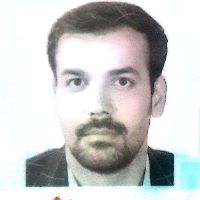An Investigation into the Problem of Evil in Fakhr-e Razi's Intellectual System
Fakhr Razi's theories on evil are divided into four general sections: 1. theological presuppositions of the problem of evil; in this case, he claims that, philosophers believe in legal good and badness, and lack of God’s authority; therefore, they do not deserve to discuss this issue. 2. Criticizing the views of dualists and philosophers; in an anti-dualism approach, he sees the essence of God as the source of evil, and at the same time, he opposes the views of philosophers who regard evil as an accidental factitious. 3. Criticizing the non-existential approach to evil (attributed to Plato's view): and rejecting this view through the feeling of pain and suffering. 4. Criticizing the evil division theory (attributed to Aristotle); he states that he does not see a connection between the material world and evil. On the other hand, he challenges the assumption that, the material world has very little or no evil, and multitude good.
-
The Meanings and Functions of Contradiction in Simon Weil's Thought
Mostafa Mousavi-Azam *
Philosophical Investigations, -
Madness in Avicenna’s Medicine and Philosophy
Seyed *, Mahmoud Saidi
Journal of Philosophical Theological Research,



